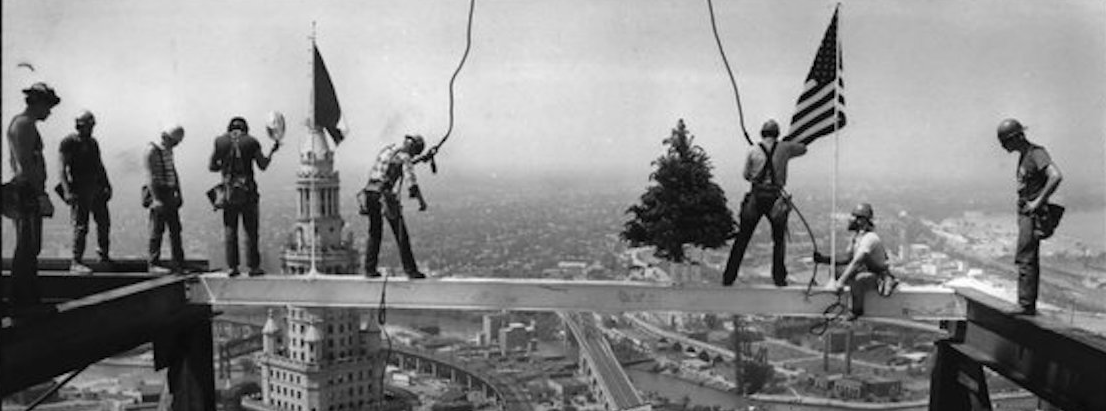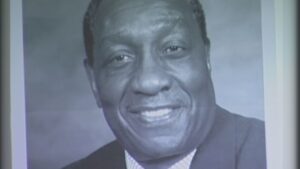Political strategist Arnold Pinkney, consultant to Jesse Jackson, Frank Jackson and others, dies
CLEVELAND, Ohio — Arnold Pinkney, who rose from the steel mills of Youngstown to become a nationally known political strategist and the manager of Jesse Jackson’s historic presidential campaign, died Monday — mere months after his most recent campaign.
He was 83.
Pinkney was best known locally as the shrewd kingmaker who put Louis Stokes in Congress and Frank Jackson in the Cleveland mayor’s office. In between, he was a trusted tactician for former Mayor Michael R. White and former Ohio Gov. Richard Celeste.
Friends said Pinkney had been ill for months. But his influence remained considerable in local politics. Last June he endorsed Armond Budish for Cuyahoga County executive, becoming one of the Beachwood-based state representative’s key early backers. He also remained close with Mayor Jackson through his successful bid last fall for a third term.
A statement from Hospice of the Western Reserve and forwarded by the Cleveland NAACP said Pinkney passed at 1:30 p.m. at the David Simpson Hospice House. His family thanked well-wishers but asked for privacy in the statement. Arrangements with the E.F. Boyd & Son Funeral Home are pending.
“The Cleveland community has lost a remarkable public servant who cared deeply about the future of our children and the well-being of all people,” said U.S. Rep. Marcia Fudge, a Democrat from Warrensville Heights and chairwoman of the Congressional Black Caucus. “Mr. Pinkney has been a friend and an astute political mentor to many, including me. My thoughts and prayers go out to his wife Betty, his daughter Traci and all other members of his family.”Said Budish, in an emailed statement: “Our hearts, thoughts and prayers go out to Arnold’s family today. Mr. Pinkney was a dedicated leader and public servant not just to the African American community, but also to all of Cleveland and Cuyahoga County. His imprint on this region has been historic, and he will be sorely missed but not forgotten.”
Political consultant Mary Anne Sharkey, who worked with Pinkney on levy campaigns and on Frank Jackson’s campaigns, said Pinkney remained engaged on the mayor’s recent re-election campaign. She recalled working with Pinkney to prepare Jackson for a City Club of Cleveland debate with challenger Ken Lanci.
“Arnold paid attention to everything from soup to nuts,” said Sharkey, who was at Cleveland City Council’s Finance Committee meeting Monday afternoon as word of Pinkney’s death spread. Council members, she said, observed a moment of silence.
An insurance broker, Pinkney drew national attention as the campaign manager in civil-rights leader Jesse Jackson’s 1984 presidential bid. Jackson didn’t win, but he credited Pinkney with running a campaign that mobilized millions of previously disenfranchised poor and minority voters.
“I am very sad today,” Jackson told the Northeast Ohio Media Group in a telephone interview Monday. “With his passing, a huge part of history goes with him — that generation, led by Carl Stokes and Lou Stokes.
“A civic leader who could push or pull,” Jackson added. “He could manage in the background or lead from the forefront. He was forever blessed with a good mind and courage and could be trusted. His legacy of service will be with us a long time.”
Pinkney often said the highlight of his career occurred years earlier in the ballroom of the Beverly Hills Hilton in Los Angeles.
Minnesota Sen. Hubert Humphrey had made a strong showing, but narrowly lost the California primary in his quest for the 1972 Democratic presidential nomination. As the partisan crowd cheered, the former vice president’s wife, Muriel, motioned for Pinkney — then her husband’s deputy campaign manager — to join the candidate on stage.
“We’re going to win this race,” Humphrey told Pinkney on national television. “And if we win, you’re coming to Washington with me to help put this country back together.”
Everyone back in Ohio was watching, and Pinkney was convinced he was headed to the nation’s capital for a cabinet post or a high-level White House position.
“It was one of the proudest moments of my life,” Pinkney would recall years later.
Humphrey didn’t win, and Pinkney didn’t go to Washington. But his fascination with politics lasted until his death. It was an attraction that began at an early age.
An education in politics
His father, David, was vice chairman of the Mahoning County Republican Party and favored Wendell Willkie over Franklin D. Roosevelt. His mother, Catherine, served as a precinct committeewoman. Their politics cast the boy as an underdog in the overwhelmingly Democratic steel town.
“Me and one other kid, a white kid, were the only ones in our whole school to wear Willkie buttons,” he said with a chuckle.
Pinkney’s father died just three months before his son, the youngest of five children, graduated from high school. To help the family make ends meet, the 17-year-old Pinkney moonlighted in steel mills.
It was around that time that he discovered Humphrey, who was to become a surrogate father. Listening to the 1948 Democratic National Convention on the radio, the teenager heard the youthful mayor of Minneapolis deliver an impassioned plea for his party to embrace civil rights — a plea so strident it drove Southern segregationists from the Philadelphia convention hall.
The speech rang in Pinkney’s ears for years. Decades later in hotel rooms from Portland to Pittsburgh, Humphrey and Pinkney would share meals and talk politics until dawn. Pinkney rode in Muriel Humphrey’s limousine during the senator’s funeral.
Young Pinkney was moved by Humphrey, but his first ambition was to play baseball. His exploits on the diamond at Albion College in Michigan eventually landed him in the school’s sports hall of fame. A talented shortstop with a strong bat, Pinkney played ball with Major Leaguers while stationed in Europe during an 18-month stint in the Army.
Pinkney held his own with the big-leaguers, but Indians scout Paul O’Dea warned the young man that he would be in his late 20s by the time he made it to the majors.
“He said, ‘Your race needs more lawyers than baseball players,'” Pinkney recalled.
Heeding O’Dea’s advice, Pinkney came to Cleveland in 1955 and enrolled in law school at Western Reserve University, but dropped out when he ran out of money. He met his wife, Betty, while at Albion. The couple later had a daughter, Traci.
The young family man went to work, becoming the first black agent hired by Prudential Insurance Co. He was soon drawn to causes, heading a membership drive for the NAACP and picketing a supermarket chain for not hiring blacks.
Partnering with the Stokes brothers
Pinkney met the Stokes brothers while doing bail bond work, and he soon became involved in local politics. After seeing Pinkney run successful local judicial campaigns, Louis Stokes tapped Pinkney to run his 1968 Congressional bid. The victory made Stokes Ohio’s first black congressman. Pinkney’s reputation grew after he helped Carl Stokes, the first black mayor of a major American city, survive a tough re-election fight.
“It’s like watching a symphony,” Louis Stokes said of Pinkney’s campaigns during a 2001 interview. “I’ve seen a lot of campaigns and Arnold is unquestionably the best I’ve ever seen.”
Pinkney did not spend his whole career behind the scenes. He served as Cleveland school board president from 1971 to 1978. The post thrust him into the public spotlight during the start of the district’s tumultuous desegregation case.
Pinkney’s visibility grew, but it wasn’t enough to propel him to higher office. He made unsuccessful runs for mayor in 1972 and 1975. After the latter loss, he moved to Shaker Heights to remove himself from consideration for future races.
The affable Pinkney was known for campaigning hard in white West Side wards where support for a black candidate ranged for disinterest to outright hostility. Pinkney would later tell of walking into a Kamms’ Corner tavern and hearing himself being loudly disparaged by a guy standing at the bar.
“The guy said, ‘He don’t have the nerve to come in here,'” Pinkney recalled years later. “I tapped him on the shoulder and shook his hand. He said he lived in Fairview Park, but if he lived in Cleveland, he would have voted for me.”
But Pinkney also discovered a considerable down side to public service. While serving on the Cleveland-Cuyahoga County Port Authority in 1984, Pinkney was convicted of having an unlawful interest in a public contract. Pinkney argued he sold insurance to the board only after a board attorney told him such a deal was legal.
Five years later, a state parole board unanimously recommended a full pardon, and Celeste, who was then governor, pardoned his old friend.
The reigning guru of Cleveland politics
Pinkney spent much of the last two decades championing candidates and causes he believed in. His knack of knowing exactly how many votes a candidate or issue needed to prevail — and precisely where to find those votes — established him as the reigning guru of Cleveland politics.
“Most people take political science course and that kind of thing,” said former Cuyahoga County Deputy Elections Director Lynnie Powell, who first met Pinkney as a 16-year-old campaign volunteer. “Arnold never really did that. He knew in his gut how to run a campaign and how to reach people.”
White, who met Pinkney when he was 14, frequently tapped into that expertise during his three terms as mayor. In a six-year period, White asked Pinkney to run campaigns on five issues, all of them successful: the 1995 effort to extend the countywide tax on cigarettes and alcohol to help pay for construction of Cleveland Browns Stadium; the 1996 Cleveland schools levy campaign; a 1997 campaign to defeat a charter change that would have limited the city’s ability to grant tax abatements; and a 2001 school bond issue.
“I’d rather be on his side than against him,” said Richard DeColibus, the retired Cleveland Teachers Union president who pushed the unsuccessful tax-abatement issue.
Pinkney ran lawyer Raymond Pierce’s mayoral bid in 2001, losing to Jane Campbell and rival political strategist Gerald Austin. But he got revenge four years later when he helped Frank Jackson defeat the Campbell-Austin team.
Through it all, Pinkney remained an active partner in Pinkney Perry Insurance, a firm he and Charles B. Perry opened more than 45 year ago. He also served on the boards of Albion and of Central State University in Wilberforce.
“I have a gift for getting people involved,” Pinkney said in a 2001 interview. “And I like doing it.”
This obituary was written by former Plain Dealer reporter Scott Stephens, with contributions from Plain Dealer reporter Grant Segall.

